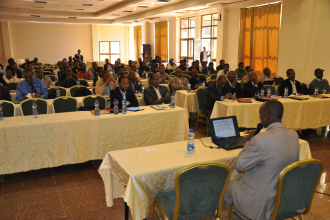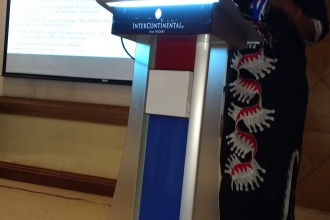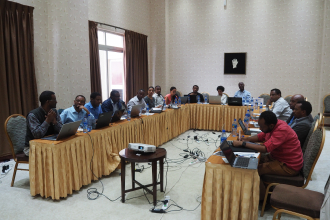The Economics of Biodiesel Production in East Africa: The Case of Ethiopia
This is a chapter in a book entitled “Bioenergies in East Africa between challenges and opportunities” Edited by Marco Setti, Daria Zizzola, 2016.
This is a chapter in a book entitled “Bioenergies in East Africa between challenges and opportunities” Edited by Marco Setti, Daria Zizzola, 2016.
On January 29th 2017 the Alliance Manchester Business School at the University of Manchester (UK) will launch a sequence of two Massive Online Open Course (MOOC) on Water Supply and Sanitation Policy…
This paper uses three rounds of a rich panel data set to investigate the determinants of household cooking fuel choice and energy transition in urban Ethiopia. It is observed that the expected energy transition did not occur following economic growth in Ethiopia during the decade 2000–2009.
Single objective approach is most widely used whereas consideration of multiple objectives is the rule rather than an exception in many real life decision-making circumstances. This paper, therefore, investigates whether or not single and multiple criteria/objective approaches necessarily lead to differing conclusions. The central questions are could the single objective approach be a reasonable approximation for subsistence farm settings or does the multiple objectives approach has anything to add?
Risk aversion has generally been found to decrease in income. This may lead one to expect that people in poor countries will be more risk averse than inhabitants of rich countries. Recent comparative findings with students suggest the opposite, potentially giving rise to a risk-income paradox. Findings with students, however, may result from selection effects. We test whether a paradox indeed exists by measuring the risk preferences of over 500 household heads across several regions in the highlands of Ethiopia.
This paper tests the effect of stake size on ambiguity attitudes. Compared to a baseline condition, the paper find subjects to be more ambiguity seeking for small probability gains and large-probability losses under high stakes. They are also more ambiguity averse for large-probability gains and small-probability losses. the study traces these effects back to stake effects on decisions under risk (known probabilities) and uncertainty (unknown probabilities). For risk the paper replicates previous findings.

The Third International Conference on Sustainable Land and Watershed Management (SLWM3) was, held in Mek’elle in northern Ethiopia, which focused broadly on building resilience in the phace of climate…

Healthy forests in sub-Saharan Africa are an important source of wild pollinators, and thus support agricultural productivity and food security in the region, a conference in the Kenyan capital…

The Environment and Climate Research Center (ECRC) at the Ethiopian Development Research Institute (EDRI) held a meeting from 23-25 September 2016 to review milestones and targets that were set for…